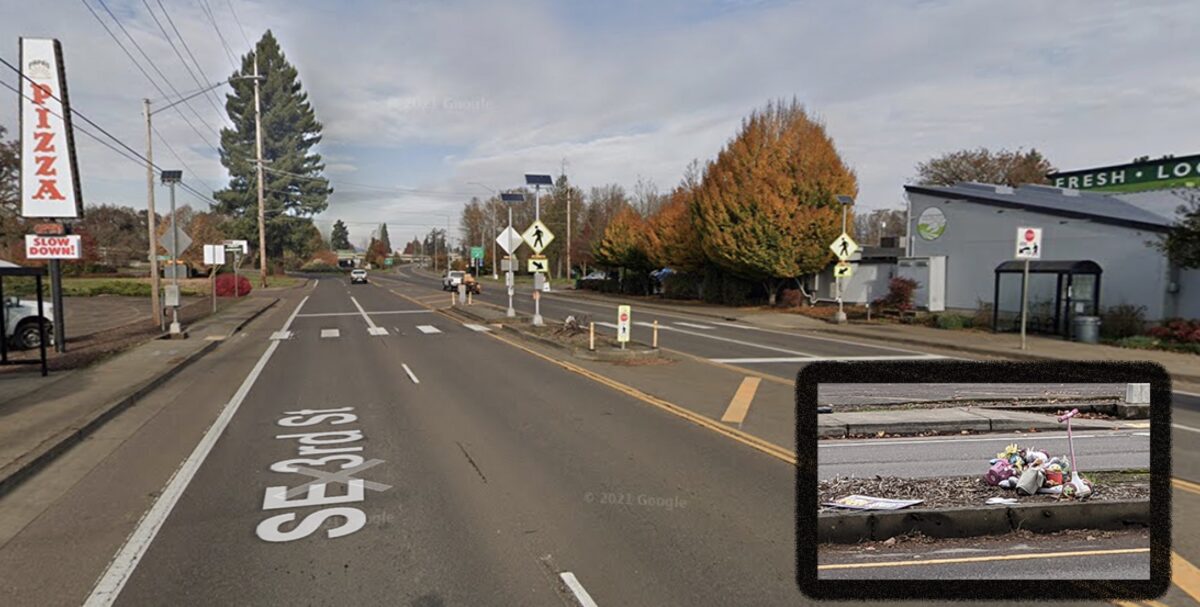
(Inset photo: Ben Fryback)
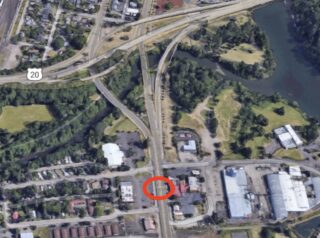
Three people have been killed by drivers on the same stretch of road in Corvallis in the 18 months between 2018 and 2020. Eric Austin and Jeremy Gruver, both 32, were struck by drivers while cycling in 2018 and 2019 respectively. Rhianna Daniel, 11, was killed in January 2020 while she was walking across the street in the same area.
Today, Rihanna’s scooter and some of her toys remain in the median of the mid-block crossing of SE 3rd (Highway 99W) and SW Twin Oaks Circle.
This month, Gruver’s father and Daniel’s father have both filed wrongful death lawsuits against the Oregon Department of Transportation and City of Corvallis.
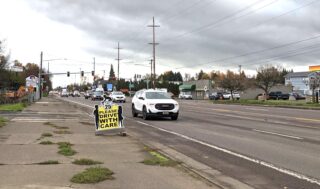
(Photo: Ben Fryback)
Gruver’s lawsuit seeks more than $2 million collectively from the suspected drivers, the City of Corvallis and the Oregon Department of Transportation. In Gruver’s case, both suspected drivers say he was to blame for his own death because he allegedly didn’t maintain a proper lookout, performed an unsafe turn while bicycling and didn’t yield to the driver’s right of way.
The stretch of road all three people were crossing is on ODOT’s Highway 99W over the Marys River, a place Gruver’s lawsuit alleges is “unreasonably dangerous for vehicular, pedestrian and bicyclist travel for the general public” because of poor street design that funnels traffic onto Highway 99. The mid-block crossing is just 350 feet from ramps that lead U.S. Highway 20.
Gruver’s lawyers say ODOT and the City of Corvallis should have known the crosswalk and surrounding area were unsafe. It claims that there is insufficient lighting in the area and the bike lanes were in poor condition and too narrow according to ODOT standards, along with other issues.
The lawsuit that Rhianna Daniel’s father has filed against ODOT and the City of Corvallis is for more than $9 million. This lawsuit alleges that the intersection where she was struck didn’t comply with ODOT’s line of sight requirements, the agency didn’t inspect or maintain these requirements and there were no signs posted to warn pedestrians about these line of sight obstructions.
Advertisement
ODOT and the City of Corvallis have both placed blame on both the driver and the victim.
No lawsuit or criminal charges were filed after Austin’s death in 2018. But the community has been urging officials to act on this dangerous stretch of Highway 99 since Austin was killed – another reason ODOT and Corvallis should have known there were problems before two more people were killed.
Litigation is pending for both Gruver and Daniel’s lawsuits, but as of now, ODOT and the City of Corvallis have both placed blame on both the driver and the victim. In the case of Gruver’s lawsuit specifically, the government organizations have claimed immunity from liability.
Claiming “discretionary immunity” is a common legal tactic when government agencies like ODOT are sued with claims of dangerous infrastructure. The federal statute says a public body is immune from liability for “any claim based upon the performance of or the failure to exercise or perform a discretionary function or duty, whether or not the discretion is abused.” We’ve reported on cases like this before, and have found the government agency will often settle with the family out of court.
Regardless of whether or not ODOT or Corvallis will face any legal consequence for this clearly hazardous infrastructure, these lawsuits draw attention to the statewide problem of ODOT-owned arterials wreaking havoc on road users just trying to get from place-to-place in their neighborhood.
Just last night in Portland, there was a fatal hit-and-run on a different stretch of this same highway. It happened at the intersection of ODOT’s Highway 99E and SE Holgate — just yards from where a man was killed in a separate hit-and-run back in September.



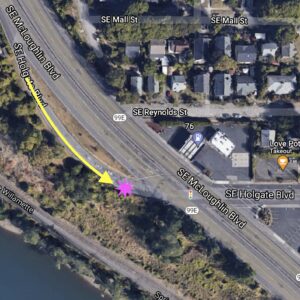
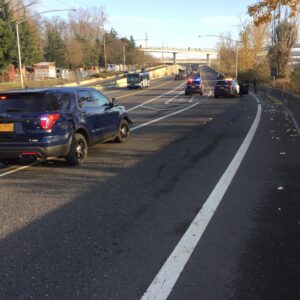

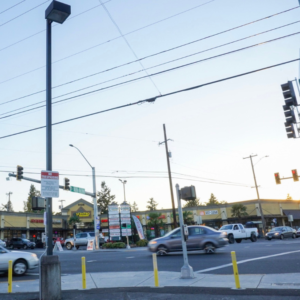
Thanks for reading.
BikePortland has served this community with independent community journalism since 2005. We rely on subscriptions from readers like you to survive. Your financial support is vital in keeping this valuable resource alive and well.
Please subscribe today to strengthen and expand our work.
Pure fantasy, I know, but… I really wish there was personal liability for those who are clearly apathetic to dangerous design or, more crucially, wilfully design roads that will result in injury/death. In their minds maximum speed/throughput seems to be the only thing that matters. Safety and economic vitality are irrelevant.
In absence of this fantasy, at least recognition and accountability would be nice.
I grew up near there. It’s terrible, and worse since they expanded the highway. On the legal front: Nitpicking, but agencies’ immunity assertions in most cases will be under Oregon state law, not federal statute (unless you’re suing the federal government). In any event, regardless of the facts or the the number of crashes at a location, the argument is always the same: (1) the agency did nothing wrong, (2) even if they were at fault they are immune from liability, and (3) blame the user. Courts are increasingly reluctant to accept those excuses. More reading here:
https://medium.com/vision-zero-cities-journal/unsafe-streets-new-liability-59d7dc18515b
When Eric Austin was killed by a speeding driver named Jeff Scoville the DA did not file criminal charges because the bar is so high to be able to do so, but the rarely used vulnerable road user law was employed and Scoville pled no contest. Sadly he spent most of the next couple years refusing to take responsibility and ended up completing only a portion of his community service. The law may need some work to better define what is allowed as community service and how it should be monitored. My understanding is that there was also some settlement between Scoville and the estate but it was small because Scoville was largely judgement proof and Oregon requires drivers to carry so little insurance. One thing the state absolutely should do is to increase the minimum insurance requirements for drivers significantly so that at least victims who live have some hope of getting a reasonable amount of money to deal with their injuries.
Just fix the God D@mn crossing! Better lighting whatever! Hell, it the ppls taxes that get it done! Better spent on fixing it than paying for lawyers and court fees!!!! Pretty “F” to claim that immunity! Just fix it so no one else dies!